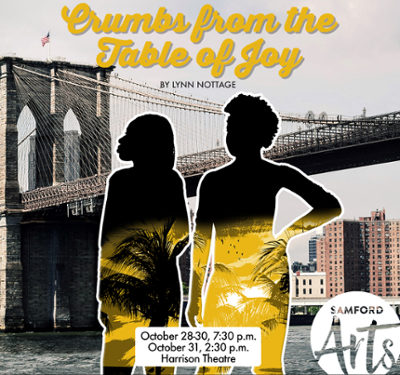“Crumbs from the Table of Joy” is a play by Lynn Nottage about a Black family living in New York during the 1950s. As a part of the Michael J. and Mary Anne Freeman Theatre and Dance Series, it will be performed in Harrison Theatre from Oct. 28 to Oct. 31.
Student stage manager Egypt Davis expressed excitement about the project.
“As a Black theatre student at Samford, for this show to be happening, I felt a part of myself become giddy and excited about seeing someone like me on stage for the first time in my three years at Samford,” Davis said.
This production was done in partnership with Miles College, where Chalethia Williams is an instructor. She both directed the show and will play the part of Lily.
Rehearsals began over Zoom on Sept. 20, and in-person rehearsals began about a week later.
“We will have had exactly six weeks to learn the show, prepare it and perform it,” Davis said.
Cameron White, who plays Godfrey, said he has enjoyed embracing his character.
“I am tackling grief, being a single father, loneliness, religion, life’s decisions and having to deal with my mistakes that come back to haunt me,” White explained. “The biggest thing is raising my daughters and watching them grow from being my little gals to young women.”
Only one member of the cast, Elle Brown, is a Samford student.
“Even though most of the cast are not Samford students, I have been able to meet some of the crew members and make connections with people in the theatre industry outside of Samford,” Brown said.
Her role is that of Gerte, a white German immigrant who marries Godfrey.
“For this role, I had to figure out how to do a German accent, which was interesting to say the least,” Brown said. “Thankfully Dr. Castle helped me with that.”
Those involved in this production felt that it was important for this particular play to be performed on Samford’s campus to fulfill a gap in representation they feel has long been a problem.
“Samford Theatre is very much a direct reflection of white American theatre, which lacks not only diverse stories, but diverse casting,” said Davis. “Theatre was created not just for entertainment, but to reflect, showcase, connect and influence society.”





